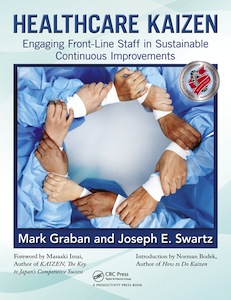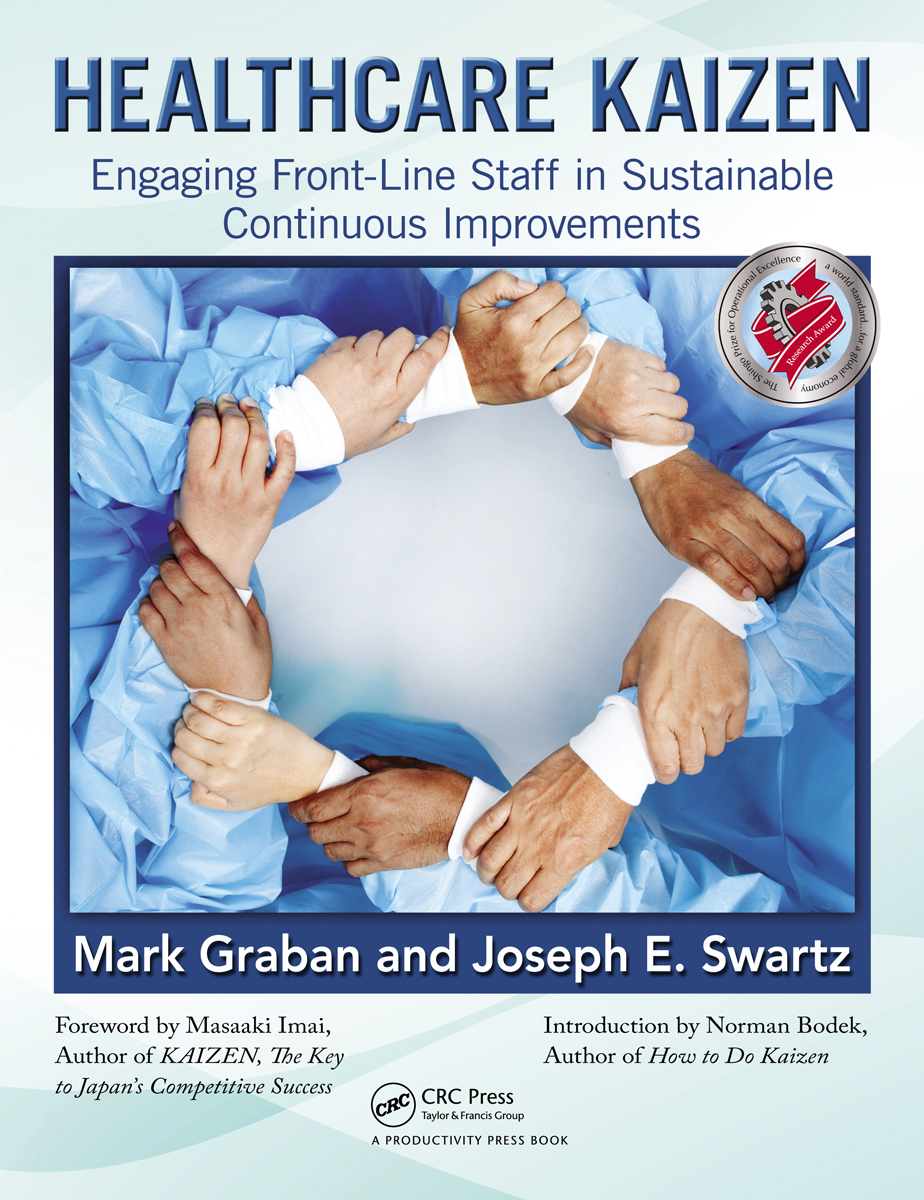Healthcare Kaizen
Healthcare Kaizen: Engaging Front-Line Staff in Sustainable Continuous Improvements
by Mark Graban and Joseph Swartz
Introductory material by Masaaki Imai and Norman Bodek
Release date: June 2012
How to use the two books together

Healthcare Kaizen focuses on the principles methods of daily continuous improvement, or “Kaizen,” for healthcare professionals and organizations. Kaizen is a Japanese word that means “change for the better,” popularized by Masaaki Imai in his 1986 book KAIZEN and through the books of Norman Bodek, both of whom contributed introductory material for this book.
In 1989, Dr. Donald M. Berwick, founder of the Institute for Healthcare Improvement and former administrator of the Centers for Medicare & Medicaid Services, endorsed the principles of Kaizen in the New England Journal of Medicine, describing it as “the continuous search for opportunities for all processes to get better.” Healthcare Kaizen shows how to make this goal a reality.
Healthcare Kaizen shares some of the methods used by numerous hospitals, including Franciscan St. Francis Healthcare, where co-author Joe Swartz has led these efforts. Most importantly, the book covers the management mindsets and philosophies required to make Kaizen work effectively in a hospital department or as a organization-wide program.
All of the examples in the book are real examples that were shared by leading healthcare organizations, with over 200 full-color pictures and visual illustrations of Kaizen-based improvements that were initiated by Chief Operating Officers, nurses, housekeepers, and other staff members at all levels.
Healthcare Kaizen will be helpful for organizations that have embraced weeklong improvement events, but now want to follow the lead of ThedaCare, Virginia Mason Medical Center, and others who have moved beyond just doing events into a more complete management system based on “Lean” or the “Toyota Production System.”
It’s often said, without much reflection, that “people hate change.” The experiences shared in this book will prove that people actually love change when they are fully engaged in the process, they get to make improvements that improve patient care and make their day less frustrating, and when they don’t fear being laid off as a result of their improvements.
Full Table of Contents | Google Books Preview
Also available: The Executive Guide to Healthcare Kaizen

